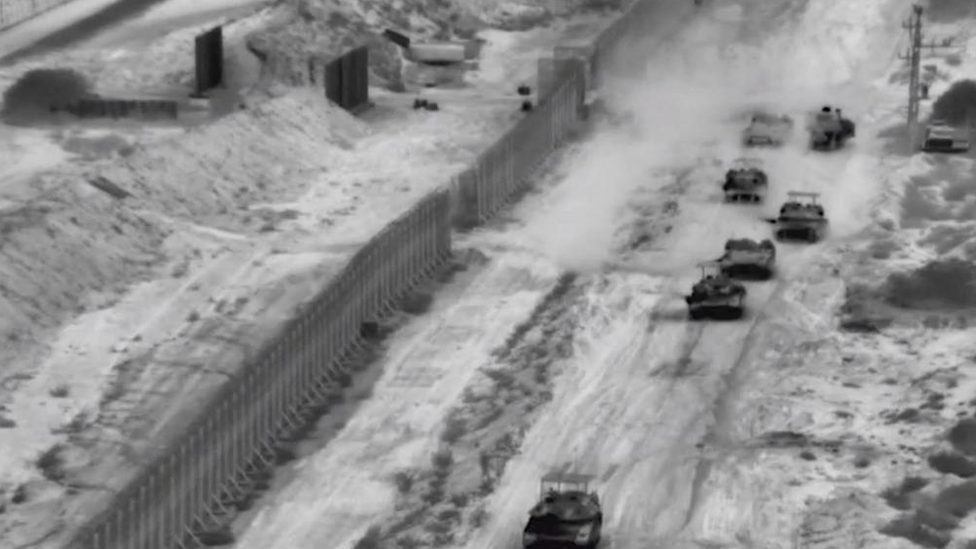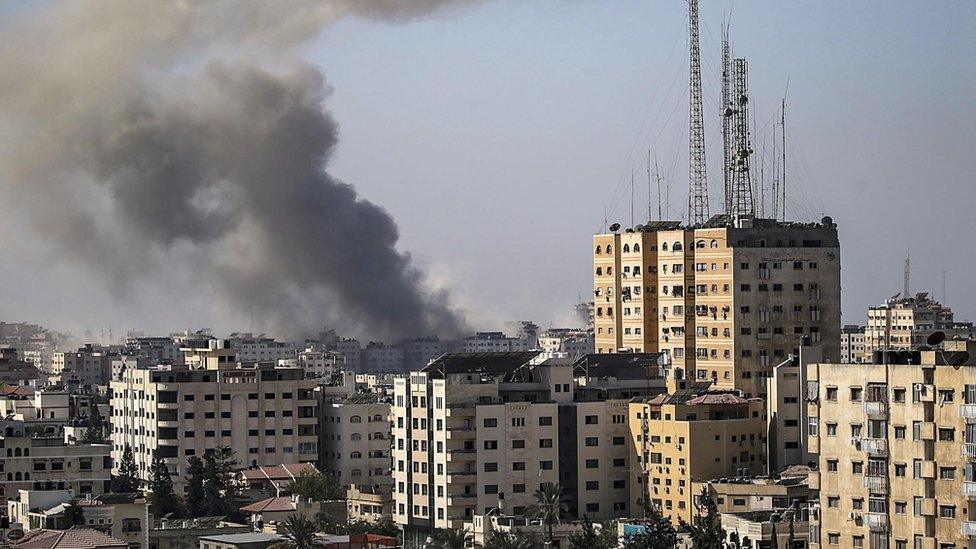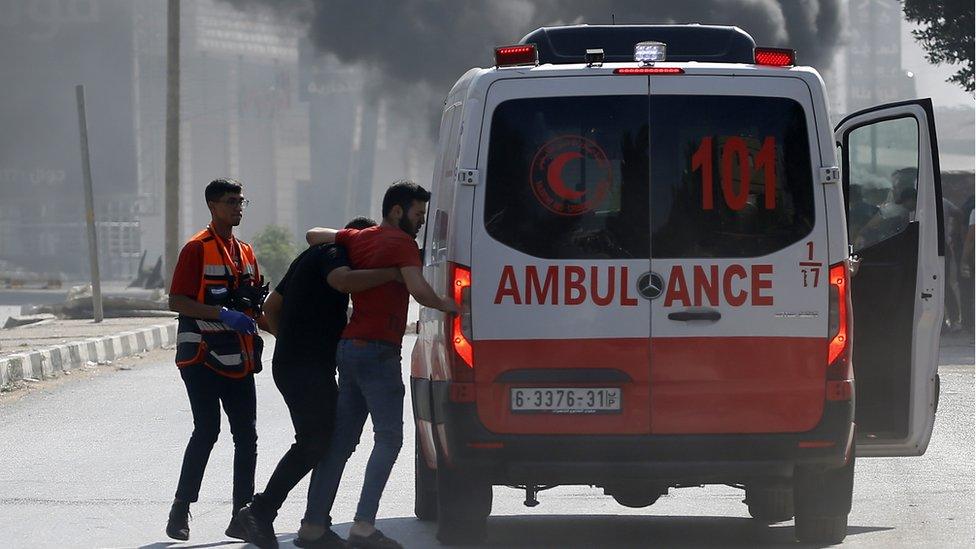'Reconnaissance by fire' - What Israel's Gaza raid tells us
- Published

Israel's overnight raid will have provided planners with some intelligence ahead of an expected full-scale incursion
The overnight raid into the Gaza Strip by Israeli tanks, infantry and armoured engineering units was not the first since the 7 October Hamas attack on southern Israel, but it was certainly the largest.
It had several stated purposes.
"Through the raid, we eliminated terrorists, we neutralised threats, dismantled explosives, neutralised ambushes," said Israeli military spokesman Daniel Hagari.
This has been described as "a tactical operation", meaning it was limited in scope, lasting only a few hours, with all Israeli forces returning unharmed back into Israel, according to their spokesman.
The Israeli government has repeatedly said it intends to launch a full-scale military incursion into Gaza to permanently destroy Hamas's military capability. Many analysts have questioned whether this is achievable, given Hamas's historic ability to replace both its lost commanders and weaponry.
The overnight raid will have provided Israeli planners with some intelligence, but the longer Israel waits to launch its incursion the more time Hamas has to prepare for it, including rebuilding some of the very defences Israel says it destroyed overnight.
In what, in military jargon, is known as a "shaping operation", the footage released by the Israeli Defence Forces (IDF) shows an armoured column breaking through the border wall and advancing across open sandy ground on the northern outskirts of Gaza.
The grainy black and white footage, taken from thermal imaging cameras mounted on both aerial drones and vehicles, then shows tank fire engaging unidentified targets in the middle distance. There is no footage showing any tanks manoeuvring in the closely packed residential areas of Gaza City.
The tanks involved are Merkava Mark IV's - said to be amongst the most advanced in the world - although this did not prevent Hamas fighters from disabling and capturing one of them on 7 October.
"Uniquely", says the former British Army tank commander Hamish de Bretton-Gordon, "the Israeli Merkava tanks can carry four Special Forces soldiers in the back, so this raid was to take out key locations, anti-tank positions and is what we call 'reconnaissance by fire'".
He adds that because of Israel's superior night equipment he would expect them to operate more effectively than Hamas in the dark.

Hamas has built numerous tunnels beneath the Gaza Strip, which has been under heavy Israeli bombardment
Another vehicle that features in the footage released by the IDF is the D9 armoured bulldozer.
Ironically, it was an ordinary civilian bulldozer that was shown in Hamas footage breaking down the Gaza border wall ahead of their raid into southern Israel on 7 October.
But the vehicles used by the IDF have a specialised military purpose: to clear away obstacles, rubble and booby traps ahead of advancing troops. Operated by the IDF's Combat Engineering Corps, they have the Hebrew nickname "Doobi", meaning "teddy bear", and have been used in previous urban operations.
The engine, hydraulics and cabin all have armoured protection and the bulldozers can be fitted with machine guns, grenade launchers and what is known as an "Active Protection System" to fend off explosive drones.
If and when a full-scale Israeli incursion into Gaza begins then these armoured bulldozers will likely play a key role. But they are not indestructible, and one of the many threats the Israeli troops are expected to face will come from lethal off-route mines called Explosive Formed Projectiles (EFP), which can fire a bolt of molten metal at supersonic speed into the side of a tank or other armoured vehicle.
Israel's Merkava tanks will likewise be vulnerable to mines buried in the road, and their turrets vulnerable to rocket-propelled grenade fire from rooftops.
Much of the fighting, if it occurs, will be below ground in the many hundreds of kilometres of subterranean tunnels Hamas has built beneath the Gaza Strip.
Casualties here are expected to be high and there is the added complication that this is where Hamas is believed to be holding most, if not all, of its more than 200 hostages.

More on Israel-Gaza war
Follow live: Latest updates
Explained: What is happening in Israel and Gaza, and why now?
History behind the story: The Israel-Palestinian conflict

Related topics
- Published24 October 2023

- Published25 October 2023
